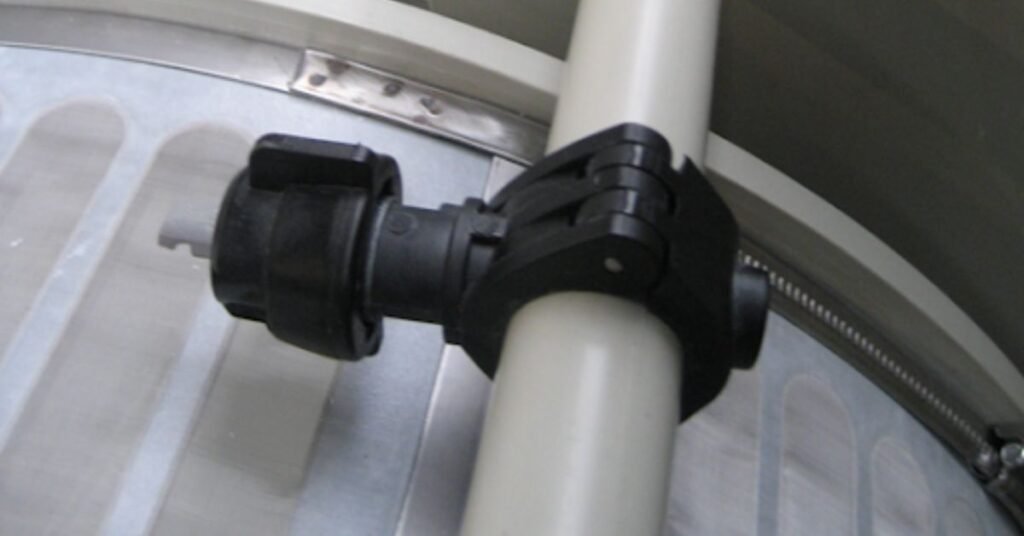Washing machines are fundamental apparatuses in many families; however, once in a while, one inquiry frequently emerges. Is the reason my Washing machine can turn out to be unquestionably loud?
The most well-known reason for a washer making a loud clamour during the tumult cycle is an exhausted drum bearing or broken drive pulley.
In this article, we’ll investigate the normal reasons for loud Washing machines and give a few hints on how to address them.
Typical Reasons for a loud Washing machine:
1. Imbalanced Load:
An imbalanced burden is one of the most widely recognized explanations behind a loud Washing machine. When garments are not equally dispersed inside the drum, the machine can wobble and make banging or pounding commotions. This issue is especially predominant during the twisted cycle when the drum pivots at high velocities.
- Solution: Stop the washing machine and evenly distribute the clothes around the drum to correct an unbalanced load. Try to wash items of the same weight and size together instead of overloading the machine.
2. Unfamiliar Items:
Coins, buttons, and other small objects can sometimes get stuck in the drum or pump, causing rattling, clinking, or grinding sounds during machine operation.
- Arrangement: Routinely check and void pockets before washing garments. If you suspect something is caught in the drum, cautiously assess the inside and eliminate any unfamiliar items. For things seen in the siphon, consult your Washing machine’s manual for directions on the most proficient method to access and clean the siphon.
3. Loose Parts:

Over the long haul, different Washing machine pieces can be free because of customary use and vibrations. Components like the drum bearings, belts, and bolts can become loose, resulting in rattling or banging sounds.
- Arrangement: Assess the washing machine for free parts and fix them if possible. If you’re not happy doing this without anyone else’s help, it may be ideal to call an expert specialist to guarantee everything is safely set up.
Also Read: How Heavy Is A Washing Machine?-Complete Guide
Mechanical Problems:
1. Worn Bearings:
The heading supports the drum and assists it with pivoting without a hitch. If the heading breaks down, it can cause a noisy thundering or crushing commotion during the twist cycle. That is a more significant issue that frequently requires a proficient fix.
- Arrangement: If you suspect the directions are worn, it’s vital to get them replaced as quickly as time permits. Proceeding to leave the machine in this state can cause additional harm. Contact a certified fix expert to evaluate and replace the directions.
2. Broken Drive Belt:
The drive belt is liable for turning the drum. The belt can slip or make squeaking clamors if worn, free, or harmed. The machine’s ability to spin correctly may also be affected by this problem.
- Arrangement: Examine the drive belt for indications of wear or harm. The noise should go away if the problem appears to be with the belt. That errand might need proficient help if you’re curious about machine fixes.
Environmental Factors:
1. Unlevel Machine:

A Washing machine that isn’t level can shake and make an over-the-top clamor during activity. During the spin cycle, this is especially evident.
- Arrangement: Utilize a soul level to check if your Washing machine is appropriately adjusted. Change the legs of the machine until they are level. Many washing machines explicitly accompany flexible feet for this reason.
2. Hard Ground surface:
Stern decks, like tile or cement, can intensify the commotion of a Washing machine. The vibrations from the machine can be sent through the floor, causing the commotion to appear to be stronger than it is.
- Arrangement: To help manage the disturbance, use an elastic mat or hostile-to-vibration cushions underneath the washing machine. These items can retain some of the vibrations and decrease the general commotion level.
Also Read: Why Is My Washing Machine Making Noise When Off?-Complete Guide
Regular Maintenance Tips:
Keeping your washing machine in good working order can help you avoid problems many noise problems. To keep your machine quiet, here are some maintenance tips:
1. Clean the Filters and Drum:

Keeping the drum and filters clean regularly can keep foreign objects from getting stuck and making noise. To ensure that you clean it safely and effectively, follow the cleaning instructions provided by the manufacturer.
2. Check for signs of use:
Occasionally, investigate the Washing machine for indications of mileage. Check the entryway seal, hoses, and other parts for any damage that could prompt commotion or other issues.
3. Balance Loads Appropriately:
Ensure that your loads are always adequately balanced to prevent the machine from becoming unbalanced. Abstain from overburdening the Washing machine and attempt to blend vast and small things to accomplish a reasonable burden.
4. Plan regular services:
Consider making regular service appointments with a trained technician to catch any potential issues before they become major ones. Regular maintenance can extend your washing machine’s lifespan and maintain its smooth and quiet operation.
When to Call an Expert:
Some noise issues can be fixed by making minor adjustments or performing routine maintenance, but others necessitate professional intervention. If you’ve tried all the options above, but your washing machine still sounds loud, it’s time to call the pros. Diligent commotion can indicate severe mechanical issues that, whenever left unrestrained, could prompt more expensive fixes down the line.
Also Read: Butter Braids-A Good Guide To Make Tasty Recipe
FAQ’s:
1. Why is the spin cycle of my washing machine so loud?
Most frequently, this is brought about by drum-bearing disappointment. Hand-spinning the drum is one testing method. If it’s loud, the bearings will require substitution. The second, more straightforward approach to testing is to attempt to lift the drum from behind the entryway’s highest point.
2. Is it protected to utilize a loud Washing machine?
All Washing machines make low-level clamour during a wash program, which is ordinary and not a reason to worry.
3. Why does my Washing machine seem like a fly motor while turning?
The most probable giver will be the metal rollers. These little items may not appear robust, but they’re fundamental to your pantry capabilities.
4. How can I say whether my washing machine headings are falling flat?
That is the most well-known method for diagnosing flawed Washing machine headings. Begin the washing machine’s spin cycle and listen for any grinding, rattling, or knocking sounds. Assuming you hear any of these commotions, it is a decent sign that the directions are defective.
Conclusion:
A loud Washing machine can be a disturbance, yet understanding the typical causes can help you analyze and fix the issue. Whether it’s an imbalanced burden, unfamiliar articles, or mechanical problems, there are steps you can take to address the clamour.
Your washing machine can run quietly and effectively with regular maintenance and prompt repairs, making laundry day less stressful. If all else fails, make sure to have proficient assistance to guarantee your Washing machine stays ready to go.

